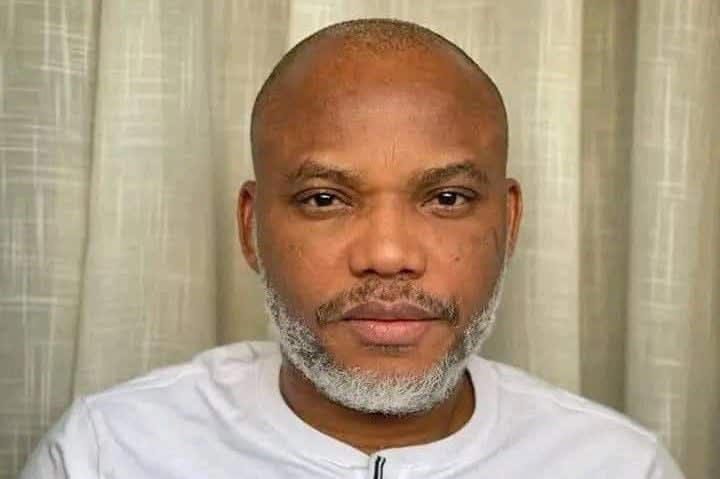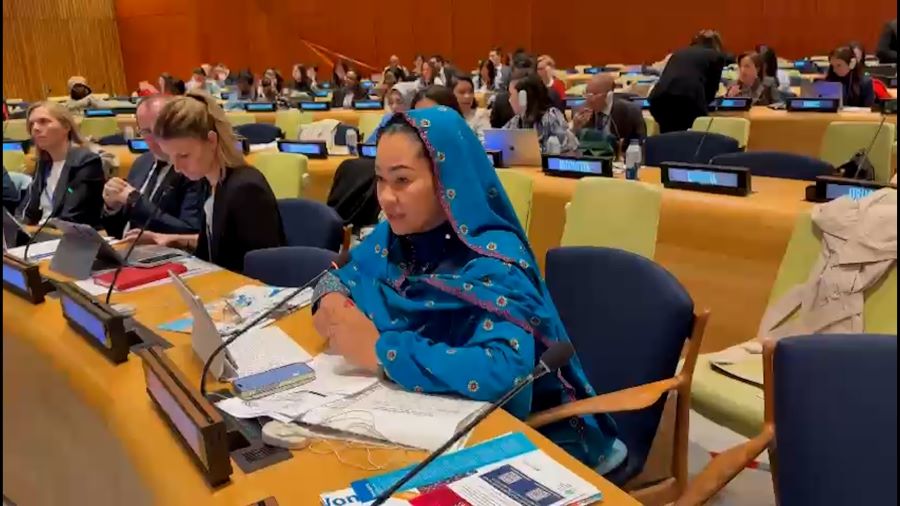Senator Natasha Akpoti-Uduaghan (Kogi Central/PDP) has called on the Federal Government to adopt successful diaspora engagement strategies similar to those of Ethiopia, Egypt, and India to boost Nigeria’s economic growth.
Speaking at the official commissioning of the UNDP-supported SMEDAN Makerspace and Solarised Garment-Making Centre in Abuja, Akpoti-Uduaghan cited Ethiopia’s flourishing textile industry as a prime example.
She noted that Ethiopia now hosts over 80 textile factories producing clothing for top international brands, including Levi, Wrangler, H&M, Calvin Klein, and Gap.
Additionally, Ethiopia’s leather goods sector supplies products to markets in Italy, showcasing the country’s broad industrial reach.
“All the cotton used by H&M is sourced from Ethiopia,” Akpoti-Uduaghan pointed out, emphasizing that such growth was made possible by the strong involvement of Ethiopia’s diaspora community, which attracted investment and built strategic international alliances.
Drawing parallels, the senator suggested Nigeria could mirror these successes by fostering deeper partnerships with the Small and Medium Enterprises Development Agency of Nigeria (SMEDAN), international organizations like the United Nations Development Programme (UNDP), and global diaspora networks.
“As Chairperson of the Senate Committee on Diaspora, we met yesterday, and one of the key focus areas identified was harnessing diaspora funding, skills, and technology transfer,” she stated. “This would enable us to follow the path of African countries like Ethiopia and Egypt that have effectively leveraged their diaspora opportunities.”
The SMEDAN Makerspace, sponsored by UNDP, is designed to promote small and medium-sized enterprises (SMEs) in Nigeria. The facility offers a solar-powered garment-making center with 24-hour electricity, addressing one of the most persistent challenges faced by entrepreneurs—unreliable power supply.

Senator Akpoti-Uduaghan stressed the transformative potential of empowering SMEs, noting that Nigeria’s estimated 40 million SMEs could significantly scale up and sustain the nation’s economy if provided with the right support.
“Empowering SMEs isn’t just about job creation; it’s about sustaining the grassroots economy and fostering innovation that can ripple through the national economy,” she said. The senator also pledged to replicate the project in all 36 states of Nigeria and advocated for similar facilities in her home state of Kogi to support garment makers and reduce their reliance on inconsistent electricity.
In his remarks, SMEDAN Director-General Dr. Charles Odii highlighted the Makerspace’s potential to revolutionize the garment industry in Abuja and beyond. He explained that the factory is a hub where tailors and entrepreneurs can access high-quality equipment powered by a reliable solar energy system.
“This is a space where talent meets opportunity. With 24-hour solar power, tailors can work, learn, and scale their businesses without the usual disruptions,” Odii said.
UNDP Country Representative Elsie Attafuah echoed this sentiment, noting the critical role young Nigerians can play in driving economic transformation if provided with the right environment. “We believe in the potential of Nigerian youths to lead the country’s economic revival. This facility addresses long-standing power challenges and enhances SME productivity,” she said, revealing plans to expand the initiative nationwide in partnership with SMEDAN.
The event attracted several dignitaries, including the Minister for Youth Development, Ayodele Olawande, Senators Ede Dafinone and Joel-Onowakpo Thomas, and other UNDP representatives. Their presence underscored the growing recognition of SMEs as pivotal drivers of Nigeria’s economic future.
With the launch of the SMEDAN Makerspace, Senator Akpoti-Uduaghan’s call for a diaspora-driven economic strategy could signal a new chapter in Nigeria’s development trajectory, harnessing both local talent and international support to build a more resilient economy.



